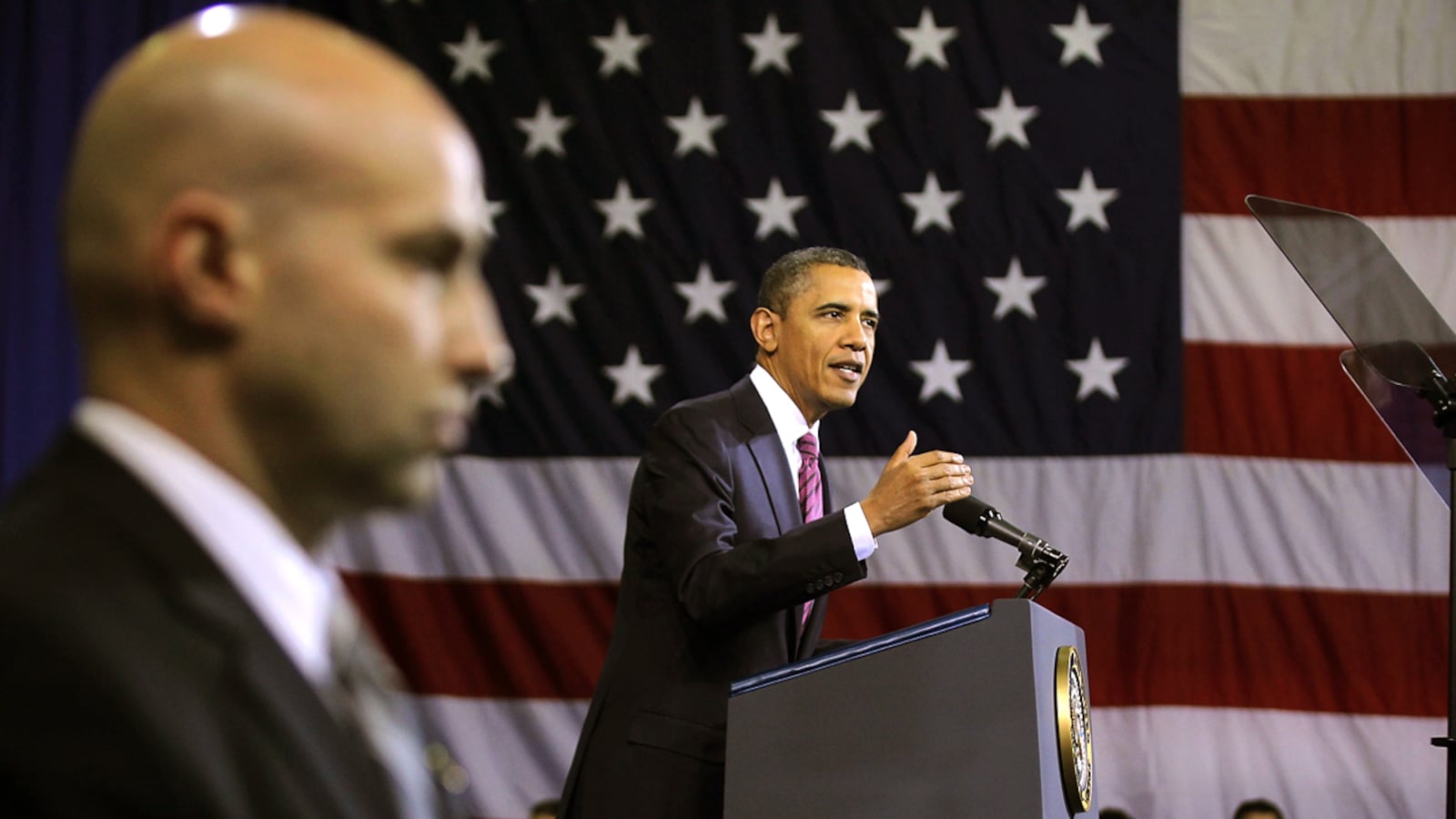The first post Citizens United presidential election is already shaping up to be one of the most lucrative in history—at least in certain quarters. President Obama is expected to raise more than $1 billion, a record that would eclipse the one he set in 2008 when he collected $750 million. Conservative super PACS are taking advantage of the new campaign-finance rules that have freed donors to give unlimited amounts to “independent” groups, amassing tens of millions to back their favorite candidates even if they can’t coordinate with them.

But if the latest round of fundraising reports is any indication, both the Democrats and Republicans are struggling to rake in contributions—albeit in very different arenas. The president has built a substantial lead over an anemic GOP field that hasn't been able to captivate its rank-and-file donors, raising $30 million more than the four remaining Republican contenders combined. Obama now has four times as much money banked as Mitt Romney, his closest competitor.
At the same time, conservative super PACs—like Karl Rove's American Crossroads, which raised $51 million last year—are lapping their liberal counterparts. Restore Our Future, the largest of the independent groups supporting Romney, collected more than $30 million last year. By comparison, supporters gave Priorities USA Action, the main super PAC backing Obama, just over $4 million.
“The Democrats and Republicans really have opposite problems right now,” said Anthony Corrado, a professor of government at Colby College. “The president has a head start and will out-raise whoever the Republican nominee is, but it's going to be a financially competitive race because on the other side of the ledger, the super PACS will step in to help erase Obama’s advantage.”
In 2008, Obama’s record haul was made possible by the fact that he broke a campaign pledge and opted out of the public financing system. He was the first candidate ever to take that step, and he justified it with the prospect of hostile outside spending. But Democrats haven't embraced that lesson and have instead rallied against the Citizens United decision that effectively elevated money into a new form of protected political speech. Many supporters of the party have been reluctant so far to contribute to the super PACs the decision effectively empowered.
The Republican super PACs, on the other hand, have a couple of key advantages. They are capitalizing on an intense wave of anti-Obama sentiment and a general concern that the president is going to be flush with cash, said Jonathan Collegio, a spokesman for American Crossroads, noting his group is aiming to bring in $300 million. Plus, the competitive GOP primary has prompted wealthy donors to open their checkbooks early to give to the outside groups that can take unlimited contributions. (There is a $2,500 cap on what an individual can give directly to her favored candidate.) Though much of the money has been spent on attack ads aimed at Republican rivals, there will be plenty left over to spar with Obama.
Despite the widespread distaste for Obama among the Republicans, the fundraising reports show that the Republican candidates have been struggling to connect with the party's base. Former House speaker Newt Gingrich's total haul for 2011 amounted to just $12.6 million, while former Pennsylvania senator Rick Santorum raised a dismal $2.1 million. Even Rep. Michele Bachmann, usually a prolific fundraiser, limped across last year's finish line with about $12 million. To put those numbers in context, even the short-lived campaign of former Tennessee senator and Law and Order star Fred Thompson collected $21.6 million in just six months. By this point in the 2008 race, former New York City mayor Rudy Giuliani had raised about $61 million.
In the Republican contest, only the campaigns of Romney and Ron Paul have brought in presidential-level figures, raising roughly $56 million and $26 million, respectively. But neither seems to be appealing to a broad base of conservatives like Obama is with Democrats, says Corrado. (The president had already received contributions from 1 million donors for his reelection campaign, reaching that mark six months earlier than he did in the 2008 cycle.) Much of Romney's money has come from wealthy contributors who work in the financial sector, while Paul has drawn support from his active but relatively small group of libertarian devotees.
While Obama has amassed a $125 million war chest, the lack of liberal super PAC funding could hurt Democrats in down-ticket races where the outcomes may be decided by a few hundred or a few thousand votes. Party strategists say privately that they know they won't be able to match American Crossroads and other conservative groups dollar for dollar, though they do say they can raise enough cash to blunt GOP messaging in key swing states like Ohio and Florida.
“The president still has the advantage,” says Corrado. “The real question is going to be whether conservative small donors will rally behind the eventual nominee to provide the money his campaign will need in a contest against Obama or if he'll have to rely on the super PACs.”






